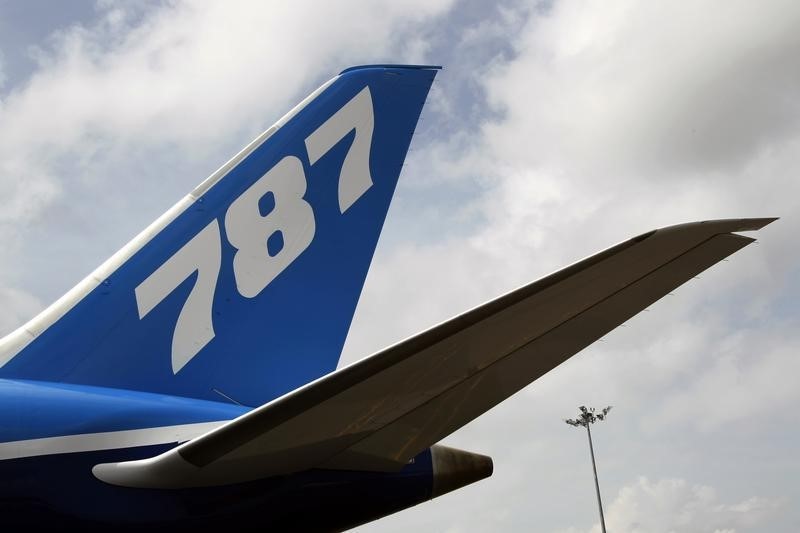BofA Securities has maintained a Neutral rating on Boeing (NYSE: NYSE:BA), with a consistent price target of $200.00.
The decision comes in light of recent announcements from competitor Airbus during the U.S. Chamber of Commerce 2024 Global Aerospace Summit.
Airbus CEO Guillaume Faury revealed plans to initiate a new aircraft program by the end of the decade.
Faury highlighted that the forthcoming aircraft is expected to reduce fuel consumption by 25% compared to the A320.
The efficiency gain hints at the likelihood of an open-rotor engine design being among the options for the new program.
The industry has long speculated about the development of an "A220XLR," and the latest statement from Airbus adds credibility to the potential realization of such an aircraft program.
Although complete information has yet to be disclosed, the timing of Airbus's announcement is noteworthy. It coincides with what could be a looming strike at Boeing, suggesting a strategic move by Airbus in the competitive aerospace sector.
Boeing, which is listed on the New York Stock Exchange, has not yet responded to Airbus's announcement. The market is observing closely how the American aerospace giant will react to its European rival's strategic advancements.
The new aircraft program from Airbus could pose challenges for Boeing, necessitating a strategic response to maintain its competitive stance in the global aerospace market.
The situation remains dynamic, with further details from both Airbus and Boeing anticipated by the market.
Boeing has been navigating through labor negotiations, having successfully secured a new contract with the International Association of Machinists (IAM) 751 union.
The agreement averts a potential strike and promises a 25% wage increase for workers. Analyst firms including TD Cowen, Baird, Deutsche Bank (ETR:DBKGn), Jefferies, and Goldman Sachs (NYSE:GS) have maintained their positive ratings for Boeing in light of this development.
Additionally, Boeing announced plans for a 2026 launch of a satellite named Q4S, aimed at testing quantum entanglement swapping technology in space, marking a significant step towards the development of a secure quantum internet.
On the production front, Boeing has adjusted its production goal for the 737 MAX aircraft to March 2025, marking a six-month delay from the initial target. This adjustment comes in response to challenges encountered in ramping up production.
The Federal Aviation Administration (FAA) has emphasized the importance of Boeing meeting adequate safety processes before it will consider lifting the production cap on the 737 MAX aircraft. The FAA's stance follows the agency's decision to limit Boeing's 737 MAX production after an in-flight emergency earlier this year. Boeing delivered a quality plan in response to this, with the FAA committing to holding quarterly meetings to monitor progress.
This article was generated with the support of AI and reviewed by an editor. For more information see our T&C.
